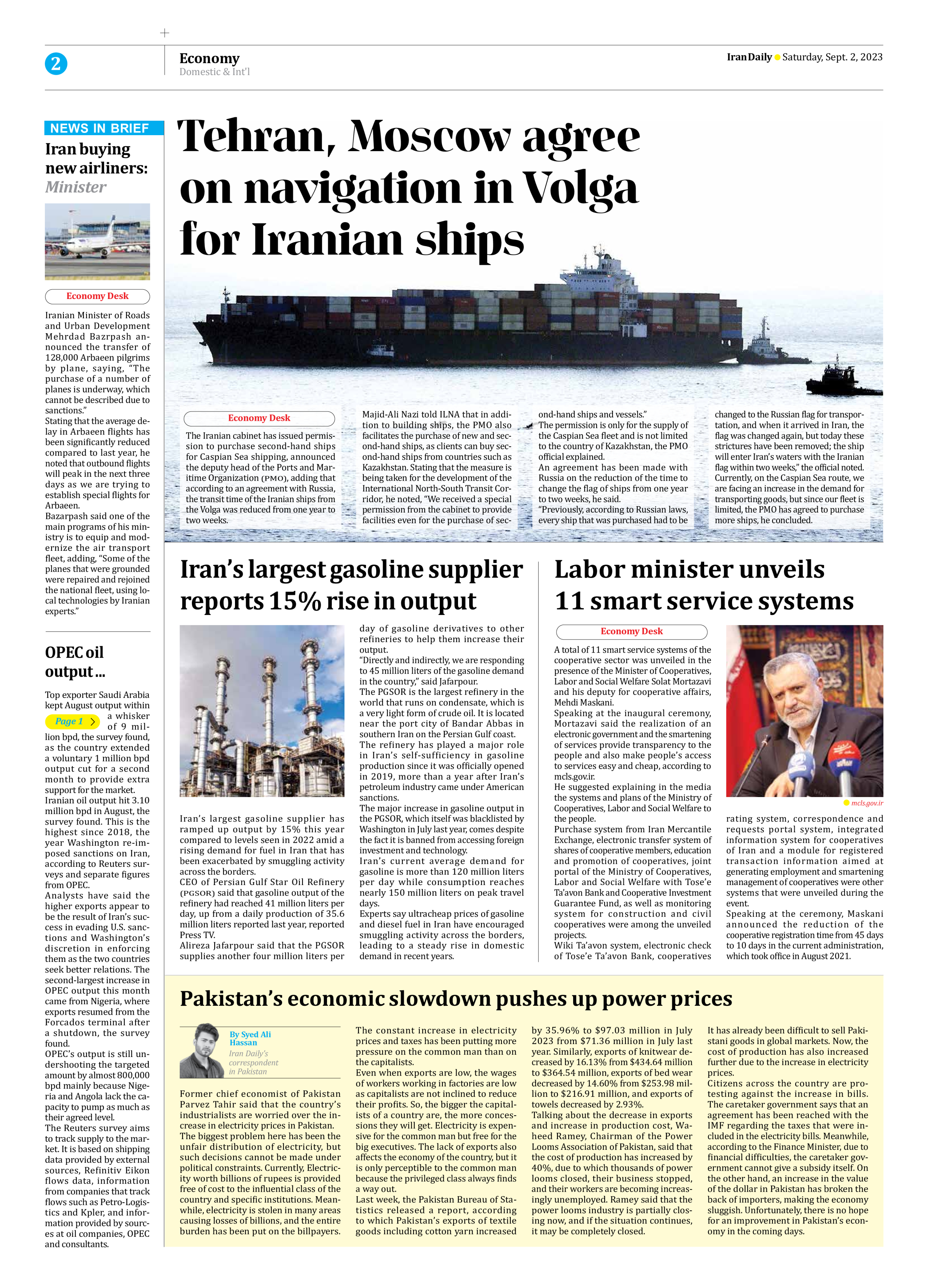
Pakistan’s economic slowdown pushes up power prices
By Syed Ali Hassan
Iran Daily’s correspondent in Pakistan
Former chief economist of Pakistan Parvez Tahir said that the country’s industrialists are worried over the increase in electricity prices in Pakistan.
The biggest problem here has been the unfair distribution of electricity, but such decisions cannot be made under political constraints. Currently, Electricity worth billions of rupees is provided free of cost to the influential class of the country and specific institutions. Meanwhile, electricity is stolen in many areas causing losses of billions, and the entire burden has been put on the billpayers. The constant increase in electricity prices and taxes has been putting more pressure on the common man than on the capitalists.
Even when exports are low, the wages of workers working in factories are low as capitalists are not inclined to reduce their profits. So, the bigger the capitalists of a country are, the more concessions they will get. Electricity is expensive for the common man but free for the big executives. The lack of exports also affects the economy of the country, but it is only perceptible to the common man because the privileged class always finds a way out.
Last week, the Pakistan Bureau of Statistics released a report, according to which Pakistan’s exports of textile goods including cotton yarn increased by 35.96% to $97.03 million in July 2023 from $71.36 million in July last year. Similarly, exports of knitwear decreased by 16.13% from $434.64 million to $364.54 million, exports of bed wear decreased by 14.60% from $253.98 million to $216.91 million, and exports of towels decreased by 2.93%.
Talking about the decrease in exports and increase in production cost, Waheed Ramey, Chairman of the Power Looms Association of Pakistan, said that the cost of production has increased by 40%, due to which thousands of power looms closed, their business stopped, and their workers are becoming increasingly unemployed. Ramey said that the power looms industry is partially closing now, and if the situation continues, it may be completely closed.
It has already been difficult to sell Pakistani goods in global markets. Now, the cost of production has also increased further due to the increase in electricity prices.
Citizens across the country are protesting against the increase in bills. The caretaker government says that an agreement has been reached with the IMF regarding the taxes that were included in the electricity bills. Meanwhile, according to the Finance Minister, due to financial difficulties, the caretaker government cannot give a subsidy itself. On the other hand, an increase in the value of the dollar in Pakistan has broken the back of importers, making the economy sluggish. Unfortunately, there is no hope for an improvement in Pakistan’s economy in the coming days.







